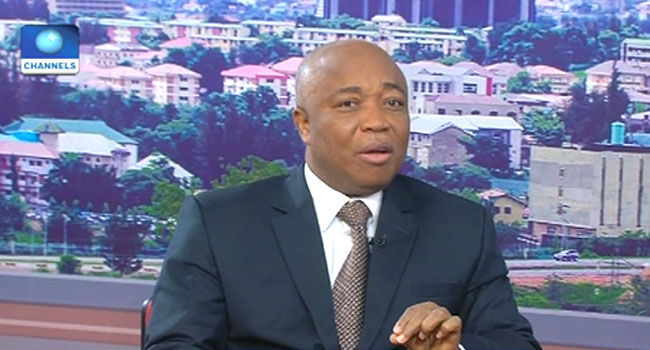
A Senior Advocate of Nigeria (SAN), Paul Ananaba, is of the opinion that there will be no justice in Nigeria until there is equity in policy and distribution of resources.
Professor Ananaba made the assertion on Friday at the International Peace Conference (IPC) put together by the Asokoro Seventh-Day Adventist Church, tagged – Contextualizing Peace: Nuggets For National Growth.
He said there is not a better time in Nigerian history, when the nation needed peace, equity and justice, than at this moment when the pulse of agitation permeates the atmosphere.
While underscoring that equity and equality are not one and the same, Prof Ananaba explained that the latter can exist without the former, however, once there is equity then equality will abound.
According to him, the myriad of inequities that exist in Nigeria are the reasons the nation has several challenges to its peace.
Furthering on, the Senior Advocate said when there are inequities, the last resort of the common man is the judiciary system, sadly, he questioned and decried how long the masses spend in court in their bid to obtain justice.
“An average case in this country that goes to the Supreme Court, will spend between 18 and 19 years, that is the fastest it can go,” Professor Ananaba buttressed and asked “wherein lies justice?”.
The Senior Advocate reiterated that there is a dire need for equity and justice because perceived injustice threatens peace at all pedestals.
“If we are equitable, we will have a significant reduction in violence,” Ananaba insisted and urged every Nigerian, all organizations and groups within the country, to focus on equity and justice for the progress of the nation.
Meanwhile, the Gbong Gwom of Jos, His Royal Highness (HRH) Jacob Buba, has said that traditional leaders in Nigeria have been marginalized in the struggle for national peace.
According to the monarch, a lot of challenges faced within the country today, are a manifestation of the neglect of the roles that traditional rulers play and a conscious attempt at forgetting history.
Speaking also on Friday at the International Peace Conference, the Gbong Gwom said there have always been a structure that saw traditional rulers and political leaders play their parts effectively for the progress of the nation, an arrangement which he noted has now been disregarded.
He said prior to the present era in which the disregard for chiefs and customary leaders have become very prominent, communities used to have their basic administrations and were always able to handle their affairs amicably.
As regards insecurity, the monarch who was a former Comptroller-General of Nigeria Customs Service, said the district heads and kings of various communities have a full knowledge of their various communities and could account for almost every member, however, this potential seem not to have been adequately harnessed as a vital tool for stemming the tides of insecurity.
In his opinion, the absence of community spirit and the marginalization of traditional leaders are major reasons why the enemies have continued to successfully invade villages and communities across the country.
Furthermore, he asserted that a major chunk of the crisis the nation is facing today, is a product of the dysfunction within families.
He said there is an urgent need for Nigerians to reconnect with their roots, and build the nation again from the home-front to the community and down to the country at large, adding that “we must do away with divisive cultures”.
While stressing that there is a certain desire within these times that seeks to have people forget everything about their tribes, the Gbong Gwom questioned why history as a subject of study has been removed from the Nigerian curriculum.
The monarch admonished that though compromise is imperative in the struggle for peace, still, each individual cannot be asked to give up all about themselves and their cultures, for in doing so, each one will lose his or her own true identity.


